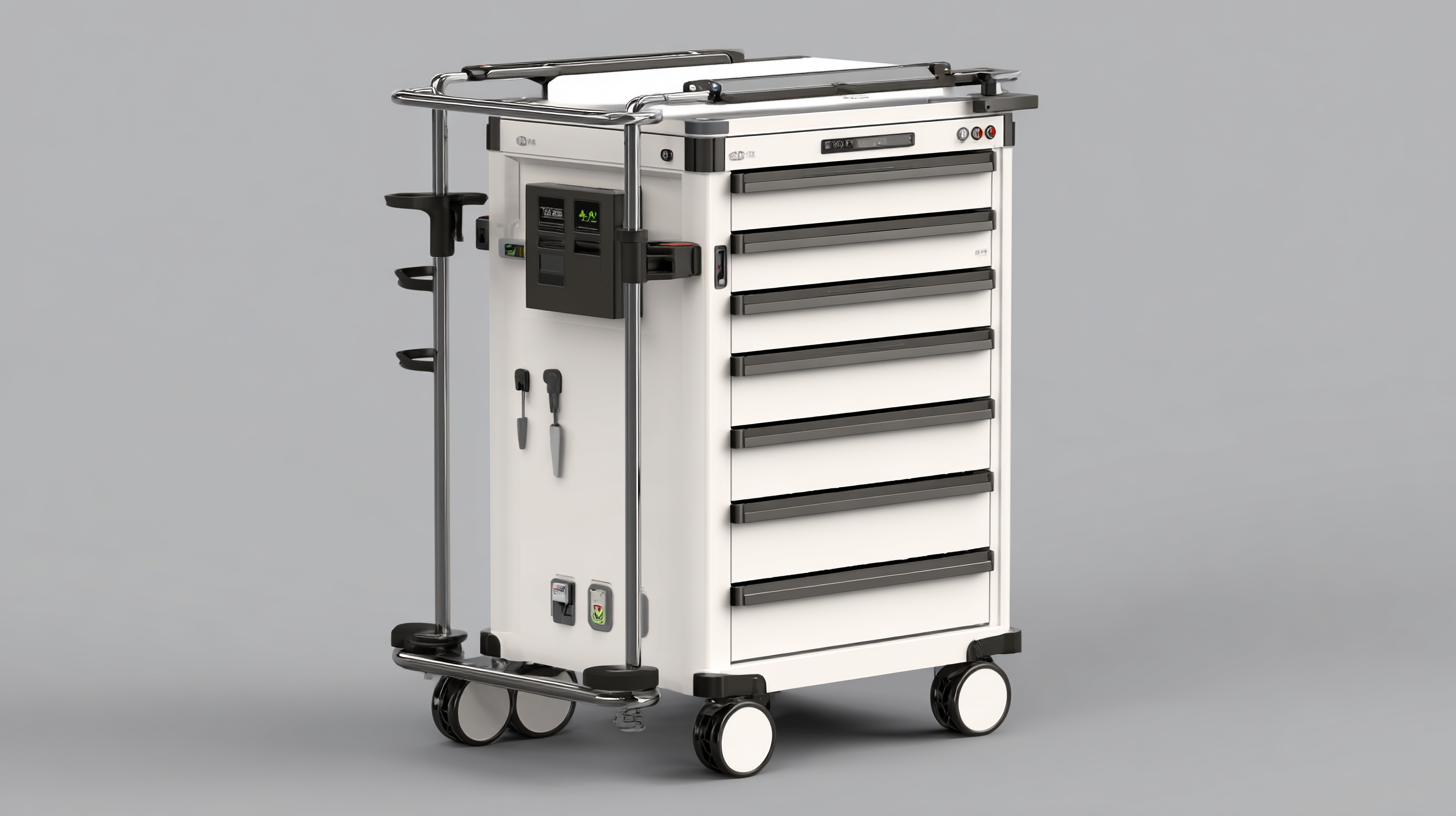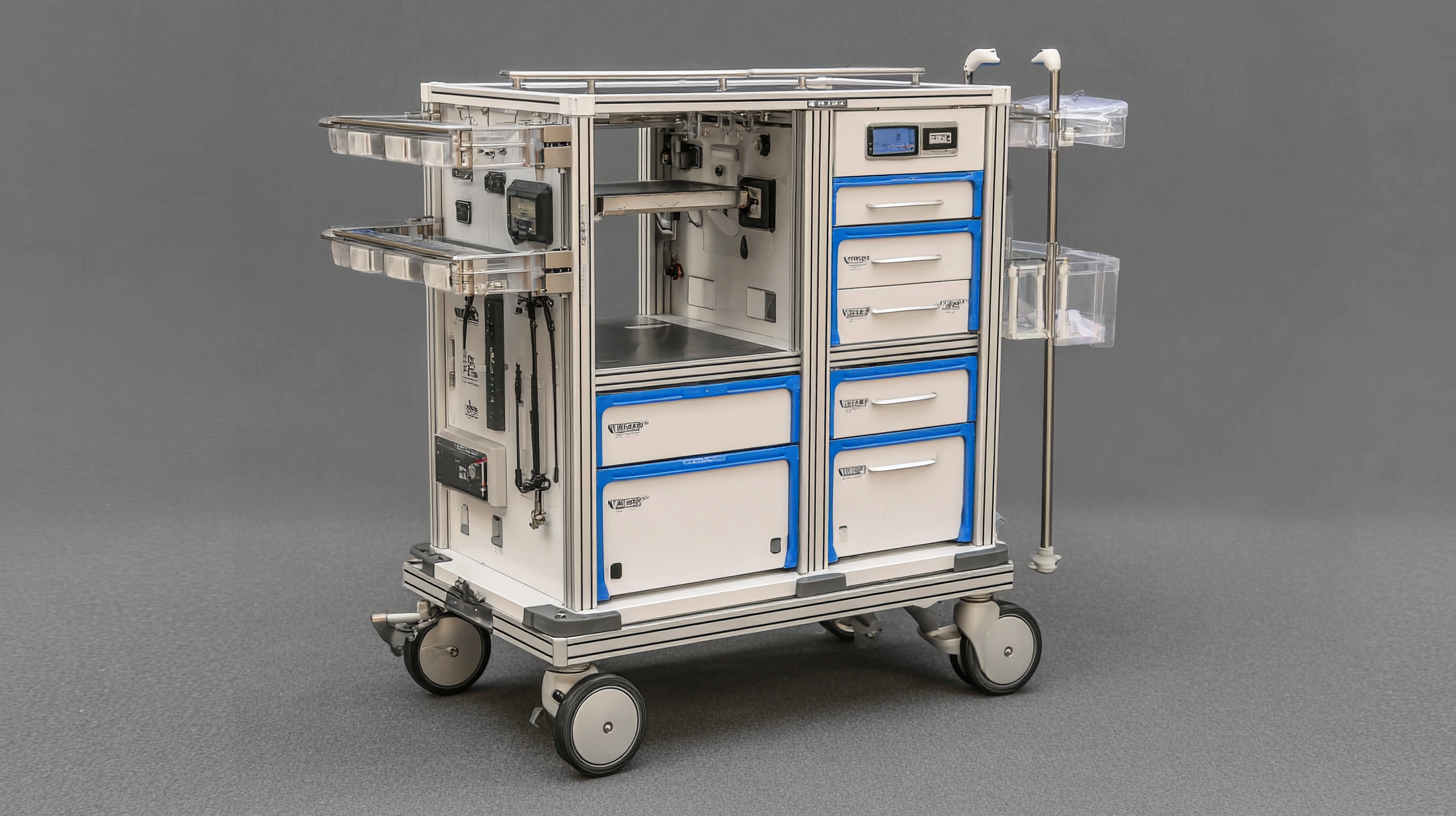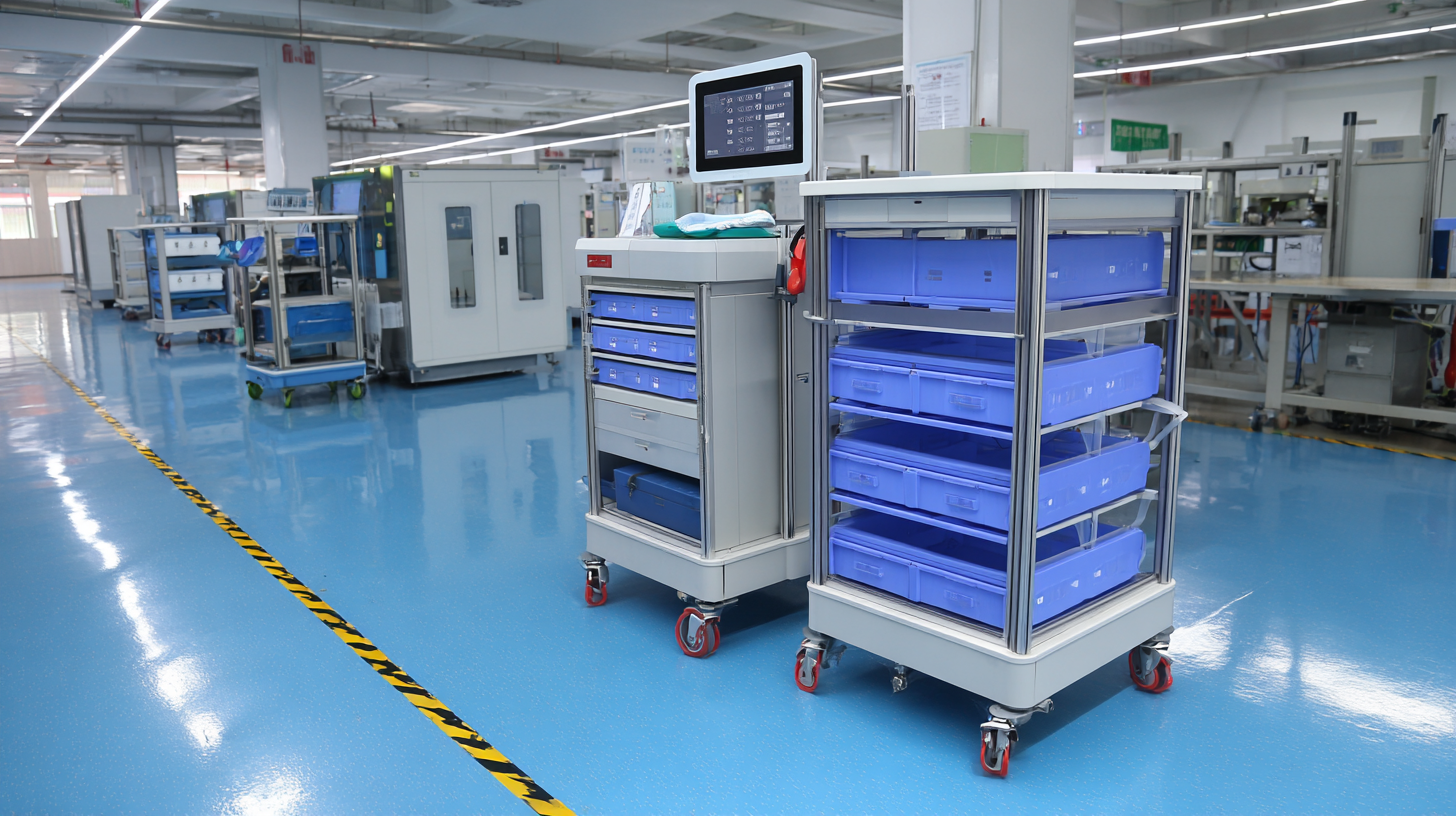Exceptional Manufacturing from China's Leading Factory for Best Mobile Medical Carts
In today's fast-paced healthcare environment, the demand for efficient and versatile medical equipment is on the rise, and mobile medical carts have emerged as a crucial solution for healthcare facilities. These carts are not only designed to enhance mobility and accessibility for medical professionals but also to streamline patient care in a variety of settings.

As the leading factory in China commits to exceptional manufacturing processes, it is vital to understand the significance of import and export certifications within the industry. This blog will delve into the essential certifications required for mobile medical carts, ensuring compliance with global standards, and provide a comprehensive guide on how to choose the right cart for your medical needs.
By exploring these aspects, we aim to shed light on how quality manufacturing practices can contribute to improved healthcare outcomes through the use of mobile medical carts.
Innovative Design Trends in Mobile Medical Carts for Enhanced Patient Care
The evolution of mobile medical carts is pivotal in enhancing patient care, driven by innovative design trends that integrate technology and usability. The U.S. medical carts market is projected to reach a significant valuation by 2030, with increasing demand fueled by advancements in healthcare technology and the necessity for efficient patient monitoring systems. Modern mobile medical carts not only offer improved mobility but also feature advanced electronic capabilities, which facilitate real-time data access and management—essential elements in today’s fast-paced medical environments.

As the industry evolves, trends such as the integration of artificial intelligence and telehealth functionalities in mobile medical carts are gaining momentum. According to recent studies, the utilization of computer workstations and medication carts has shown a marked increase in healthcare settings, in response to the growing emphasis on efficiency and safety in patient care. These carts are designed not only to support medical documentation and medication distribution but also to enhance communication between healthcare providers and patients, thereby improving overall healthcare outcomes through innovative design and technology.
Efficiency and Durability: Key Features of Top-Quality Mobile Medical Carts
In the rapidly evolving healthcare sector, mobile medical carts have emerged as an indispensable tool for efficiency and patient care. According to a report by MarketsandMarkets, the global market for medical carts is expected to reach approximately $4.4 billion by 2025, reflecting an annual growth rate of 8.7%. This surge illustrates the increasing reliance on mobile carts that enhance the workflow of healthcare professionals while ensuring quality patient interactions.
Key features such as durability and functionality play a pivotal role in the selection of top-quality mobile medical carts. Advanced materials—often including aluminum and heavy-duty plastics—ensure that these carts withstand the rigors of daily use in busy medical environments. A study conducted by the Healthcare Information and Management Systems Society (HIMSS) indicates that hospital staff members utilizing mobile carts report a 30% efficiency increase when compared to traditional fixed setups. This significant improvement underscores the importance of investing in high-quality carts that are designed to be both robust and adaptable to various medical tasks, ultimately leading to improved patient outcomes and staff productivity.
Efficiency and Durability: Comparison of Mobile Medical Carts Features
How China's Leading Factories are Shaping the Future of Healthcare Equipment
China's manufacturing sector has increasingly become a cornerstone in the healthcare equipment industry, particularly in the development of mobile medical carts. According to a recent report by Grand View Research, the global market for mobile medical carts is expected to reach $2.86 billion by 2027, growing at a CAGR of 12.5%. China's leading factories are at the forefront of this growth, leveraging advanced technologies and streamlined production processes to meet the surging demand for efficient healthcare solutions.

One significant factor driving this transformation is the integration of smart technology in medical carts. Many of China's top manufacturers are producing carts equipped with telehealth capabilities, inventory management systems, and enhanced ergonomic designs. For instance, a study by MarketsandMarkets indicates that the telehealth market is set to grow from $25.4 billion in 2020 to $55.6 billion by 2025, illustrating the increasing importance of integrating technology in medical equipment. As these factories innovate and adapt to changing healthcare needs, they play a pivotal role in enhancing hospital efficiency and patient care delivery.
Additionally, China's robust supply chain and cost-effective labor force contribute to its competitive advantage in the global medical equipment landscape. The availability of advanced manufacturing techniques, such as automation and 3D printing, enables these factories to produce high-quality mobile medical carts at scale. With healthcare facilities worldwide looking to improve operational efficiencies and patient outcomes, the role of China's leading factories in shaping the future of healthcare equipment cannot be overstated.
Sustainability in Manufacturing: Eco-Friendly Practices in Mobile Medical Cart Production
In the realm of medical equipment, sustainability has become a crucial consideration, particularly in the production of mobile medical carts. Leading factories in China have begun to implement eco-friendly practices that not only reduce environmental impact but also enhance the quality of their products. By utilizing recyclable materials and energy-efficient manufacturing processes, these factories are setting new standards in the industry. This commitment to sustainability reflects a growing awareness of the importance of protecting our planet while still providing high-quality medical solutions.
Tip: When selecting a mobile medical cart, consider the manufacturer’s commitment to sustainability. Look for products made from recyclable materials and those that adhere to environmentally friendly practices.
Moreover, these eco-friendly manufacturing processes often result in improved durability and functionality of the carts. Factories are increasingly investing in innovative technologies such as renewable energy sources and waste reduction strategies. This not only minimizes the footprint of the production process but also leads to significant cost savings that can be passed on to consumers.
Tip: Always inquire about the sustainability practices of the medical equipment manufacturer. Not only does it benefit the environment, but it also ensures you are investing in a product that is made to last.
Exceptional Manufacturing from China's Leading Factory for Best Mobile Medical Carts - Sustainability in Manufacturing: Eco-Friendly Practices in Mobile Medical Cart Production
| Feature | Description | Eco-Friendly Practices | Sustainability Rating |
|---|---|---|---|
| Material Used | Recycled aluminum and plastics | Sourcing from recycled materials | A+ |
| Manufacturing Process | State-of-the-art automation and lean manufacturing | Minimizing waste during production | A |
| Energy Source | Solar energy integrated into production | Utilizing renewable energy sources | A+ |
| Packaging | Biodegradable packaging materials | Reducing plastic use in packaging | A |
| Product Lifecycle | Designed for reuse and recycling | Encouraging end-of-life recycling programs | A+ |
The Role of Technology in Advancing Mobile Medical Carts for Modern Healthcare Needs
The landscape of mobile medical carts is rapidly transforming, driven by technological advancements that meet the evolving needs of modern healthcare. These carts are no longer mere accessories in clinical settings; they are equipped with state-of-the-art technology that enhances patient care and operational efficiency. The integration of telemedicine functionalities into mobile medical carts allows healthcare providers to offer remote consultations, thereby extending their reach beyond hospital walls. This convergence of technology and healthcare is pivotal in facilitating seamless patient interactions and improving health outcomes.
Tips to enhance the functionality of mobile medical carts include ensuring robust wireless connectivity to support telehealth applications effectively. Additionally, consider investing in carts with intuitive user interfaces for healthcare professionals, which can streamline workflows and reduce training time. Lastly, prioritize carts that are compatible with a variety of medical devices to facilitate comprehensive patient monitoring and care.
The market for integrated medical computer carts is projected to grow significantly, highlighting the increasing reliance on these technologies. As hospitals adapt to a shrinking workforce and rising patient demands, innovative mobile medical carts will play a crucial role in ensuring that care delivery remains efficient and effective.
